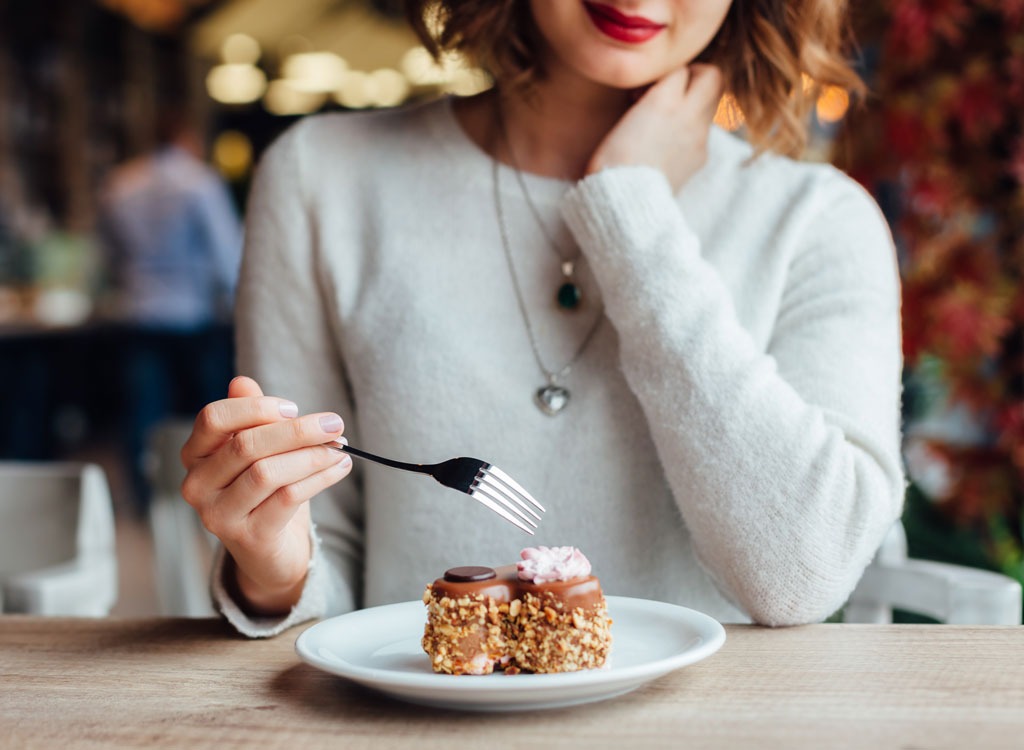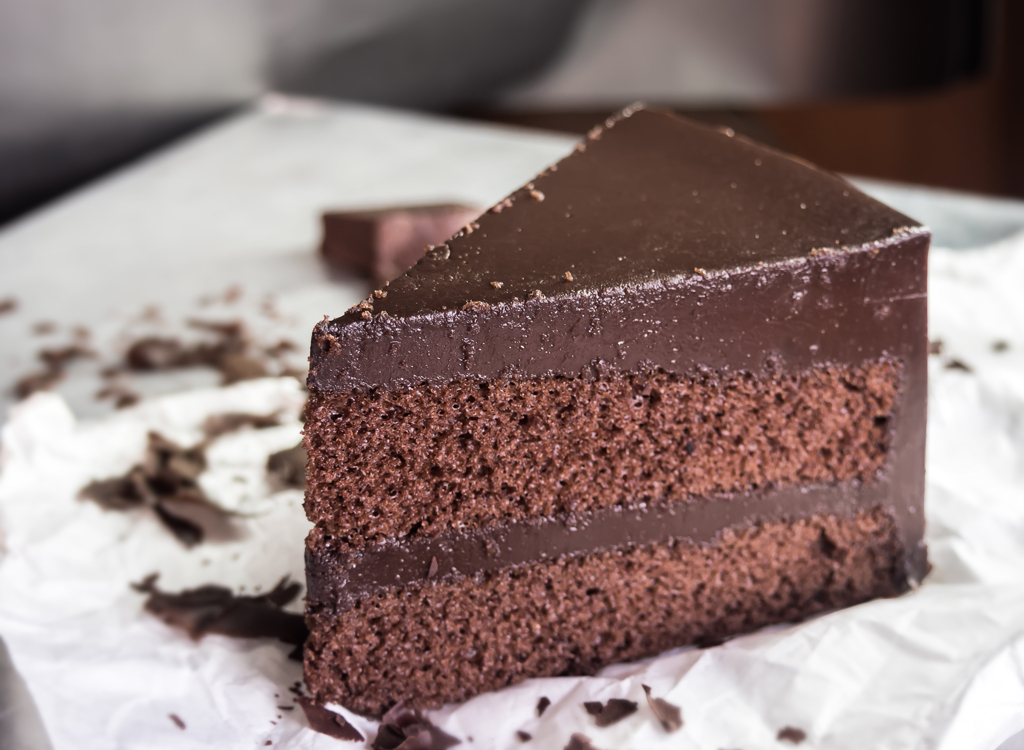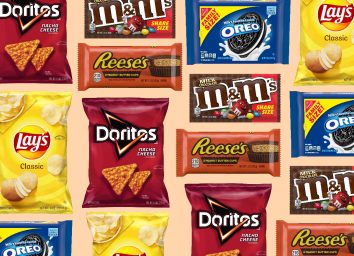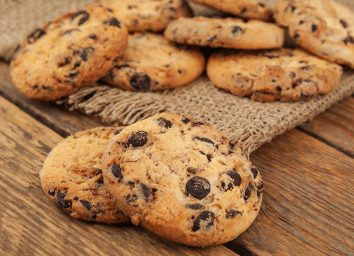You May End Up Eating Less If You Choose Dessert First

Even some of the healthiest eaters out there have a sweet tooth, or at least the casual hankering to gobble down something sugary. It’s hard for anyone to resist dessert every now and then! The trick is to eat it in moderation though, because regularly consuming sugar-filled sweets is not only bad for your teeth, but also for your waistline, as treats like donuts, candy bars, and brownies tend to pack a lot of extra calories into your diet.
However, it’s possible to indulge when a craving hits without derailing your health or weight-loss goals in the process. According to a recent study, it’s all about when you choose that decadent treat: before or after your main meal. And if you choose dessert first, there’s a good chance you’ll end up consuming fewer calories overall. Surprised? So were we.
The American Psychological Association recently published If I Indulge First, I Will Eat Less Overall: The Unexpected Interaction Effect of Indulgence and Presentation Order on Consumption, which compares research collected among four different experiments involving the time at which the dessert was offered as well as the type of dessert. One such study took place in a cafeteria, whereas the other three were online experiments that mimicked a food delivery website. The study of most interest though is the one that took place in the cafeteria. Here’s why.
What did the cafeteria experiment look like?
Over the course of four days, 134 participants traveled through a cafeteria line that either had an indulgent dessert—cheesecake—or a healthy dessert—fresh fruit—at the beginning of the line or at the end of it. There was also a selection of both healthy and unhealthy main and side dishes. The menu was fixed-price, so cost was not a factor. The amount of food that was left on the plate each day was also recorded and used to estimate the total calories each diner consumed.
What were the results?
Researchers found that when participants chose an indulgent dessert before their main meal, they ended up picking healthier foods than those who chose the healthier dessert first and those who chose either dessert last. Those who chose the cheesecake before picking their main entrée also consumed an average of 30 percent fewer calories than those who picked the fruit dessert first—and that’s including the calories from the dessert!
What’s more is that those who chose the cheesecake first were also twice as likely to order a meal like grilled chicken fajitas and a side salad meal over the fried fish and french fries than those who selected cheesecake at the end of the line.
The other three online experiments reported similar findings, except for when the participants were distracted and had a lot on their mind.

Is this study legitimate?
We asked registered dietitian Cynthia Sass to weigh in on the accuracy of this study.
“I certainly talk to my clients about choosing a splurge item first when dining out, and then creating balance around that item by pairing it with lighter foods,” says Sass. “That item may be dessert or fries. For example, if fries are what you’re really craving, maybe you order your chicken sandwich or veggie burger wrapped in lettuce instead of a bun with a side salad or order of veggies. If dessert is what you’re craving, maybe you pair it with grilled fish and double veggies, and omit the starchy side.”
Essentially, Sass says that adopting this kind of balance, or a give-and-take kind of system, is much healthier and more sustainable than having an “all or nothing” kind of mindset. After all, if you don’t allow yourself to have that specific treat you’re craving, you may continue to think about it and then end up over-indulging in something similar later in the day. Overeating, especially sugary foods, can leave you feeling sluggish. Which would you rather have: a day of mental torment that results in feeling lethargic, or just accepting that you want the treat and choosing a healthier main meal and sides to compensate?
“This study shows that we may naturally gravitate toward this kind of balance unless we’re distracted,” says Sass. “That is the very reason why I teach this as a strategy, so it can be used mindfully.”
Sass says that there are other derailers, too, aside from just distraction. She categorizes these derailers as such:
- Emotional, which means eating for comfort or celebration.
- Social, or mimicking what your friends are eating.
- Habit, which could include routine sayings such as “I ‘always’ get fries with my burger,” or “I ‘always’ get dessert when dining out.”
- Environmental, which includes temptations from advertisements of a bad-for-you food within a restaurant, whether it’s visually from a tabletop sign, or verbally from a server who is good at describing that particular food.
Overall Sass, agrees with the findings gathered from these respective studies.
“In my opinion, this research shows that we may be naturally inclined toward balance, which makes sense because it feels best. But, there are a number of factors that can get in the way, and they’re all too common. That’s why it’s important—especially if you dine out often—to have a concrete strategy for creating balance,” she says. “Using it is a win-win because you get to eat what you enjoy, but without the unwanted food coma or next-day food hangover.”








